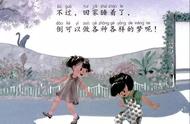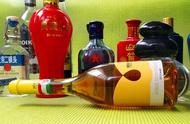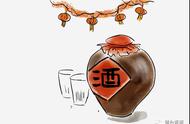7A Unit7 School clubs
Ⅰ重点单词:
fair n. 展览会 rocket n.火箭 photography n.摄影
solar adj.太阳的 power n.能量 attend v.参加
teach v.讲授 launch v. 发射 suiprised adj.吃惊的,惊讶的
disappear v.消失,消散(反义词:appear 出现) another adj.又一个的 pron.另一个
amazing 令人大为惊奇的 skill n.技术 boring adj.令人厌倦的
headline大字标题 information n.消息,信息 hurry v.& n.匆忙
ant 蚂蚁 butterfiy 蝴蝶 bee蜜蜂
recent adj.近来的
Ⅱ重点短语:
1. learn about 学习,了解
2. all the way 一路上,自始至终
3. of course当然
4. remote control 远程控制
5. look up查阅,查看,抬头看
6. get to know 知道,了解
7. all around the world 全世界
8. all around the playground 全操场
9. go on a picnic去野炊
10. go on a adventure去冒险
11. the night before 前一天晚上(指过去某一天的前一个夜晚)last night 昨天晚上
12. on Sunday morning 在星期天早上
13. hurry to…急忙赶到……
14. leave for动身去……
15. go on a long walk 走很长的一段路
16. take a picture/ take a photo拍照
17. wait for等待
Ⅲ重点句型:
1. I am so ... that...我太……以致……I was so excited that I could not sleep.
2. It is time to do sth.到时间做某事了。
3. I cannot wait for doing sth.
Ⅳ详细讲解:
1. Then you can launch them into the sky.然后你可以把它们发射到空中……(page87)
What did you do next?接下来你做了什么?(page92)
then ①“然后,其次”,侧重于表示下一个动作,常与and连用。
②作副词,还可表示“那么”;作名词,意为“那时(常作介词宾语)”
如:by then到那时 from then on从那以后 till then到那时为止
next ①adv.“然后,接下来”,强调“接着做某事” What did you do next?
②adj.“隔壁的,(空间上)最近的” next door邻家;
③n.“下一个” the year after next后年
④prep.“在……旁” a seat next her 在她的座位旁
2. Will it go all the way into space? 它会一直到太空中去吗?(page87)
into介词,意为“到……里面去” all the way意为“一路上,自始至终”
She didn’t speak a word to me all the way back home.回家的一路上,她没对我说一句话.(be back home回家)
into:表示动作方向的动态介词,意为“到……里面去”,常与表示动作的动词连用。 反义词组为out of. |
in:表示物体位置的静态介词,意为“在……里面”,反义词为out. |
3. a girl from another club shouted.另一个俱乐部的女孩喊道。 (page87)
another adj. 表示不确定数目中的“另一个”。(没有限定范围) Would you like another book? |
the other:表示两个人或两样事物中的“另一个”。(限定了范围) Both my uncles are Guangdong Province: one is in Guangzhou and the other is in Shenzhen.我的两个叔叔都在广东省,一个在广州,另一个在深圳。 |
①another pron.,意为“另一个(人或物)” He finished his apple and wanted another.
②another adj.后接可数名词单数,但也可以接带有数词或few的复数名词,意为“另外的”。
another 数字 名词复数=数字+more 名词复数
如:We need another three basketballs.我们还需要三个篮球。
(2)shout v.意为“因欢乐、赞美、发命令、提出警告、唤起注意等而喊叫”
shout to是由于距离远,声音小而“高声喊叫”; 如: I shout to her to help me.
shout at表示生气时对某人大喊大叫,态度不友好。 如: Don’t shout at that old man.
4. But a few minutes later, an old lady found it and gave it back to me.(page88)
但是过了一会儿,一位老人发现了它并还给了我。
a few | 几个,少数(还有几个,肯定意义) | There are a few boys playing football. |
few | 几个,少数(几乎没有,否定意义) | There are few boys playing football. |
a few和few 可数名词复数;little, a little 不可数名词(有a则有,无a则无)
5. watch a football match on TV在电视上看篮球比赛(page90)
(1) match可数名词,意为“比赛,竞赛”。 have a match举行比赛
We are going to have a basketball match next week下周我们要举行一场篮球赛。
match | 竞赛,比赛 | 指有一定规则的游戏或运动,且以输赢为主要目的 |
game | 运动,比赛,游戏 | 一般指竞技比赛,较正式的球类比赛,拳击等; 作复数时,一般指大型的国际体育运动会。 |
on TV意为“在电视上”。
但是“在广播里”“在电脑上”却要用the,表达为on the radio on the computer.
6. I broke my sunglasses and I left my cap on a tree. (page92)
我打破了太阳眼镜,并把帽子忘在了树上。
on a tree“在树上”
on a tree 指的是树木所固有的东西,及树上长出的东西,如枝叶,果实等“在树上” There are many apples on the tree. |
in a tree 指的是树本身以外的东西,即不属于树上生长的东西,如人,鸟或其 它物品等“在树上” There is a bird in the tree. |
7. We left for Lucky Island.我们出发去了幸运岛。(page96)
leave for 地点,意为“动身去某地,前往某地” He left (home) for the station.
leave“留下,遗忘,落下”。leave sth. sp. 意为“把某物忘在(落在)某地”
leave意为“使……处于某种状态” Leave the door open.
8. We really enjoyed ourselves.我们玩得真的很开心。(page96)
enjoy oneself意为“玩得高兴”=have a good time
enjoy sth.喜爱某物 如:I enjoy this room.
enjoy doing sth.喜爱做某事 如:I enjoy walking after supper..
enjoy “喜爱,享受……的乐趣”,具有满足感 |
love “热爱”,反义词hate,指引起深厚的强烈的感情,并有依附感 |
like “喜欢”,反义词dislike,指不反感,但不引起强烈的感情和迫切的愿望 |
9. Finally it was time to go home. 最后,到了回家的时间。(page96)
①It’s time (for sb.) to do sth.“到了(某人)做某事的时间了” It’s time to get up now.
②It’s time for sth. “到了(做)某事的时间了”,后接名词或代词。 It’s time for lunch.
Ⅴ Grammar 一般过去时
一、一般过去时:过去某个时间发生的动作或存在的状态。用动词的过去式来表示,用be(was,were)动词的过去式表示过去的状态。
二、通常使用一般过去时的时间状语
如:
1. yesterday
2. the day before yesterday (前天)
3. two days ago
4. the other day(前几天)
5. this morning
6. last night (week 、Sunday 、month、winter、year、)
7. ago (一段时间 ago)
8. just now(刚才)
9. at the moment(此刻)
10. one day(有一天)
11. at the age of… 在……岁的时候
12. once upon a time(从前)
13. long long ago(很久很久以前)
三、行为动词的一般过去式
行为动词是指表示具体动作的动词,如play, watch, eat等,它们的过去式表示这个动作发生在过去的某一时间。 We played basketball yesterday.
1、行为动词的过去式的构成:可概括为“直、去、双、改”四字诀。
①一般情况下在动词原形后直接加ed. 如watched, played.
②以不发音的字母e结尾的动词,去掉e再加ed. 如hoped, lived.
③重读闭音节结尾且末尾只有一个辅音字母,须双写最后一个辅音字母,再加ed. 如stopped, dragged, dropped, planned, chatted, kidded, begged, regretted, controlled, admitted, occurred, preferred, referred, permitted, equipped等.
有些动词的过去式变化是不规的,需单独记忆。
2.行为动词在一般过去时态的句子中的用法
①肯定句:谓语动词要用过去式时,行为动词的过去式没有人称和数的变化;
肯定句为:主语 动词过去式 宾语
如:I went home at nine o'clock yesterday.
They watched TV last night.
②改为否定句时,要把谓语动词改为“didn’t 动词原形”;
否定句:主语 didn't 动词原形 宾语
如:I didn't go home yesterday.
They didn’t watch TV last night.
③改为一般疑问句时,在句首加助动词did,句中的动词要改为动词原形。
一般疑问句:Did 主语 动词原形 宾语
如:Did you go home yesterday?
Did they watch TV yesterday?
肯定回答:Yes,I did. Yes, they did.
否定回答:No,I didn't. No, they didn’t.
④特殊疑问句:特殊疑问词+一般疑问句
When did they go home?
When did they watch TV?
四、be动词的一般过去时
1.be动词过去式的构成
①be动词的过去式表示过去的状态,如是什么,在哪里,怎么样等。 I was twelve last year.
②当主语是第一人称单数或第三人称单数时,谓语动词用was
③主语是第二人称或其他人称复数时,谓语动词用were.
2.be动词在一般过去时态的句子中的用法。
①在肯定句中:主语 was (were) 表语 (在人称和数上与主语保持一致;)
如:I was late yesterday. They were in Beijing last week.
②否定句:主语 was (were) not 表语
如:We weren't late yesterday. They weren’t/ were not in Beijing last week.
③疑问句:Was (Were) 主语 表语
如:Were you ill yesterday? Were they in Beijing last week?
肯定回答:Yes,I was. Yes, they were.
否定回答:No,I wasn't. No, they weren’t.
④特殊疑问句:特殊疑问词 was (were) 主语 表语
如:When were you born? (be born出生) Where were they last week?
五、助动词和情态动词过去式如下
shall―should(将要)用于第一人称单数
will―would(将要)用于所有人称
can—could(能,会)
may―might(可以)
must―must (必须)
have to―had to(不得不)
助动词和情态动词的过去时态要使用他们的过去式,后面的动词还使用原形。
如:I had to do my homework yesterday. (昨天我不得不做作业。)
六、一般过去式的主要用法
(1)一般过去时表示在过去某个时间发生的动作或存在的状态一般过去时不强调动作对现在的影响,只说明过去的事情。
My father worked in Shanghai last year. It was hot yesterday.
Lei Feng was a good soldier. 注意 :在谈到已死去的人的情况时,多用过去时。
(2)也可以表示过去经常或反复发生的动作,常与always, often, never等连用。
①I often went to school on foot. (过去)我经常步行去上学。
②Mrs. Peter always carried an umbrella. 彼得太太过去老是带着一把伞。
(只是说明她过去的动作,不表明她现在是否常带着伞。)
比较1 Mrs. Peter always carries an umbrella. 彼得太太老是带着伞。
( 说明这是她的习惯,表明她现在仍然还习惯总带着一把伞)
比较2 Mrs. Peter is always carrying an umbrella. 彼得太太 总是带着一把伞。
(表示说话者对这一动作或行为厌烦)
③I never drank wine. 我以前从不喝酒。
(不涉及到现在,不说明现在是否喝酒)
(3)与when等连词引导的状语从句连用。
When we got home, we had a short rest.
He was reading books when his father came in.
(4)如果强调已经终止的习惯时要用 used to do(过去常常做,而现在不那样做了)
He used to drink alcohol. 他过去喝酒。
(意味着他现在不喝酒了。喝酒这个动作终止了)
I used to take a walk in the morning. 我过去是在早晨散步。
(意味着现在不在早晨散步了,只是说明过去这一动作)
(5)有些句子,虽然没有表示过去确定时间的状语,但实际上是指过去发生的动作或存在的状态的话,也要用过去时。
I didn''t know you were in Paris. 我不知道你在巴黎。
(因为在说话时,我已经知道你在巴黎了。这句话指的是说话之前,所以只能用过去时表示。实际上,这句话暗指:But now I know you are here.)
I thought you were ill. 我以为你病了呢。
(指在说话之前,我以为你病了。但是现在我知道你没病)
7A Unit8 Collecting things
Ⅰ重点单词:
unusual adj.与众不同的(反义词:usual 普遍的) collect v.收集,搜集(n. collection)
interview n.采访 model n.模型,模特 stamp n. 邮票
front adj.前面的 silver adj.银白色的 doorbell n.门铃
soon不久 pull 按,拉(反义词 push 推) grandson n.孙子,外孙
granddaughter n.外孙女 inside 副词,里面(反义词:outside 外面)
everywhere处处,到处 ago以前 follow跟随
hardly几乎不 space 空间 free 自由的,免费的
should 应该 sentence句子 magazine n.杂志
newspaper n.报纸 really adv.确实,的确 famous adj.著名的
UK 英国 ( Britain /England) over超过=more than
something 某事,某物(用于肯定句)
anything任何事/物(用于否定句和疑问句)
Ⅱ重点短语:
1. living room 起居室,客厅
2. works of art(绘画,雕塑)艺术作品
3. (be) bad for对··有害
4. be good for对···有好处
5. (be)interested in对···感兴趣
6. a waste of time 浪费时间
7. belong to 属于
8. thank you for=thanks for(for n./v-ing/代词)
9. thank you very much=thanks a lot
10. take place发生,举行
Ⅲ重点句型:
1. Sb. spend (s) ... doing sth.
如:
You shouldn’t spend too much time collecting things.
2. What do you think of ... ? 你认为···怎么样呢?
如:
What do you think of the book?
What does Daniel think of collecting stamps?
Ⅳ详细讲解:
1.There are eight doorbells on their front door!在他们的前门上有八个门铃。(page101)
①front形容词,意为“前面的”。 This is our front garden.这是我们的前花园。
②
in front of指在某一范围以外的前面,反义词是behind |
in the front of指在某一范围内部的前面,反义短语是at the back of |
Tom is just sitting in the front of the car, and her friend Mary is standing in front of the car.汤姆正坐在汽车的前座,而她的朋友玛丽站在汽车的前面。
③front door意为“前门”,behind door是“后门”的意思。
2.···so you shouldn’t spend too much time collecting things.(page101)
too much | “太多”,修饰不可数名词; 用作副词词组时,可修饰动词; 用作名词词组时,可作表语、宾语等。 | I drank too much beer last night. You have given me too much. |
much too | “太,非常”,用作副词词组, 修饰形容词或副词,但不可修饰动词。 | I’m afraid this car is much too expensive. My wife is much too busy to see visitors. |
too many | “太多”后接可数名词复数形式。 | He has too many pens. |
3.They(The games ) will take place in the playground. 它们(比赛)将在操场上举行。 (page105)
take place在此句中含义为“举行”,还有“发生,产生”等意思。
如:When will the basketball game take place?
take place:发生,常指经过安排的。 When will the wedding take place? |
happen: 偶然发生,碰巧. What happened to you last night? |
ⅤGrammar代词
英语中代词分为:人称代词、物主代词、反身代词、指示代词、关系代词、疑问代词、连接 代词和不定代词等等。
第一:人称代词:人称代词代替人和事物的名称,分为主格和宾格两种形式。
第一人 称单数 | 第二人 称单数 | 第三人称单数 | 第一人称复数 | 第二人称复数 | 第三人称复数 | |||
阳性 | 阴性 | 中性 | ||||||
主 格 | I (我) | you (你) | he (他) | she (她) | it (它) | we (我们) | you (你们) | they (他们,她们,它们) |
宾 格 | me (我) | you (你) | him (他) | her (她) | it (她) | us (我们) | you (你们) | them (他们,她们,它们) |
1. 主格用来作句子的主语。如: I often go shopping on Sundays.(星期天我常去购物。)
2. 宾格用来作及物动词或者介词的宾语。
如:Who teaches you English this year?(年谁教你们的英语?)
3. 人称代词作表语或者放在比较状语从句连词than或as之后时,以用主格形式,可以用宾格形式,口语中大多用宾格。
4. 人称代词并列时的排列顺序
①单数人称代词并列作主语时,其顺序为:第二人称→第三人称→第一人称
即you and I he/she/it and I you, he/she/it and I
例如:It was I and John that made her angry.(It is/was…that..是一种强调句型)
②复数人称代词作主语时,其顺序为:第一人称→第二人称→第三人称
即we and you you and they we, you and they
5. 人称代词it除了可以指人指物之外,可以表示“时间、天气、温度、距离、情况”等含义,外还可以作“非人称代词”使用,代作主语或者宾语的不定式、动名词或者名词性从句。
如:--What’s the weather like today?(今天天气怎样?)—It’s fine.(天气晴好)
第二:物主代词:说明事物所属关系的代词,分为形容词性和名词性两种。
第一人 称单数 | 第二人 称单数 | 第三人称单数 | 第一人称复数 | 第二人称复数 | 第三人称 复数 | |||
阳 性 | 阴 性 | 中 性 | ||||||
形容 词性 | my (我的 | your (你的) | his (他的) | her (她的) | its (它的) | our (我们的) | your (你们的) | their (他们的, 她们的,它们的) |
名词 性 | mine (我的 | yours (你的) | his (他的) | hers (她的) | its (她的) | ours (我们的) | yours (你们的) | theirs(他们的, 她们的,它们的) |
1. 形容词性物主代词只能作句子中名词的修饰语,后面要跟名词。
如:①Is that your umbrella?(那是你的伞吗?)
②I often go to see my aunt on Sundays.(我经常在星期天去看望阿姨。)
③They are their books.(是他们的书。)
2. 名词性物主代词相当于名词,既代替事物又表明所属关系,在句子中往往独立地作主语、
宾语或者表语,后面千万不可以跟名词。名词性物主代词=形容词性物主代词 名词
如:
①This is your cup,but where is mine?(这是你的杯子,可我的在哪儿?)
②Your classroom is very big, but ours is rather small.(你们的教室很大,我们的相当小。)
3. “of 名词性物主代词”称为双重所有格,定语时放在名词的后面。
如:我的一个朋友昨天来看我了
A friend of mine came to see me yesterday. (指若干朋友中有一个来看我。)
My friend came to see me yesterday. (指我的那个特定的朋友来看我。)
a friend of my mother’s(我母亲的一个朋友)
第三:反身代词:用来表示"我自己","你自己","他自己","我们自己","你们自己"等意义的代词,表示谓语的动作与主语有关或者宾语补足语的动作与宾语有关。
第一人 称单数 | 第二人 称单数 | 第三人称单数 | 第一人称复数 | 第二人称复数 | 第三人称复数 | ||
阳性 | 阴性 | 中性 | |||||
myself (我自己) | yourself (你自己) | himself (他自己) | herself (她自己) | itself (它自己) | ourselves (我们自己) | yourselves (你们自己) | themselves (他/她/它们自己) |
(1) 作宾语,表示动作的承受者就是动作的发出者,主语和宾语指同一个人或一些人。
He called himself a writer.
Would you please express yourself in English?
(2) 作表语。
I'll be myself soon.
The girl in the news is myself.
(3) 用作同位语时,主要用于加强被修饰词的语气,可紧放在被修饰名词后或句末。作主语或宾语的同位语,表示亲自或本人。
I myself washed the clothes. =I washed the clothes myself.(作主语同位语)
You should ask the teacher himself.(作宾语同位语)
(4) 用于 be, feel, seem, look 等后作表语表示身体或精神处于正常状态。
I'll be myself again in no time. 我一会儿就会好的。(in no time马上,立即; 即将)
I’m not quite myself these days. 我近来身体不大舒服
(5) 有些动词需要用反身代词:
enjoy oneself = have a good time (过得很愉快)
by oneself = alone (单独、独自) all by myself孤单一人,全靠我一个人
help oneself to… (随便吃/喝 些...)
introduce oneself (介绍自己)
look after oneself(照顾好自己)
make yourself at home 别客气,请便,就像在自己家
如:
We enjoyed ourselves very much last night. 我们昨晚玩的很开心。
I'm here all by myself and I know I'm going to get lost.这里只有我一个人,我知道我会迷路的。
Please help yourself to some fish. 请你随便吃点鱼。
第四:名词所有格
1. 名词所有格:表示有生命的东西的名词以及某些表示时间、距离、星球、世界、国家等无生命的东西的名词后加’s表示所有关系,叫做名词所有格。
例如: men’s room 男厕所 Chairman Mao’s works *著作
a stone’s throw 一步之遥 the moon’s light 月光
2. 名词是以-s或-es结尾的则只在该名词后加’,来构成所有格。
例如: 3 hours’ walk 三小时的路程 five minutes’ walk 五小时路程
tow miles’ distance 两英里的距离
3. 用名词所有格表示处所
例如: a butcher’s 肉铺 a tailor’s 裁缝铺
a barber’s 理发店 a doctor’s 诊所
my sister’s 我姐姐家 stationer’s 文具店
区分: A’s and B’s mothers 意为“A的妈妈和B的妈妈”(两位妈妈)
A and B’s mother 意为“A和B共同的妈妈”(一位妈妈,A和B为兄弟姐妹)
,












